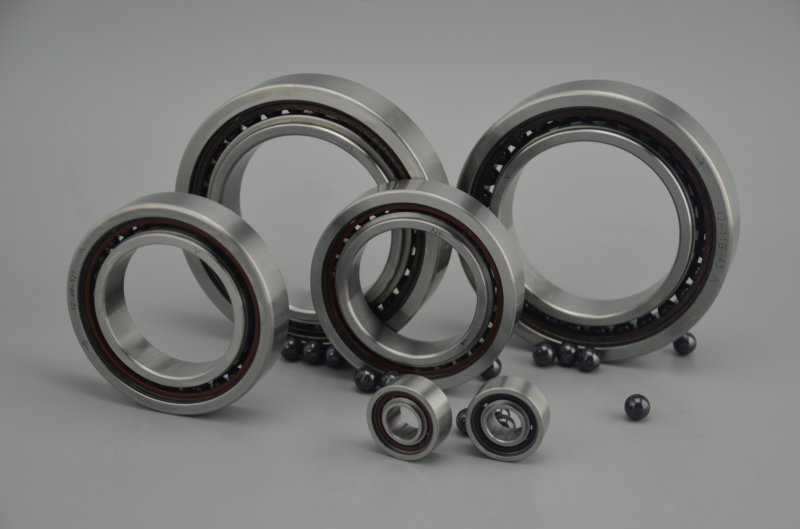As an important mechanical basic part, silicon nitride ceramic bearings dominate the world of new materials because of their excellent characteristics unmatched by other bearings. Silicon nitride is not the hardest material among industrial ceramics or the material with the highest toughness, but in bearing applications that require high performance, silicon nitride is considered to have the best comprehensive mechanical and physical properties.
Performance comparison of 5 bearing materials:
Performance | Silicon nitride | Zirconia | Alumina | Bearing steel | Stainless steel |
Density (g/cm3) | 3.25 | 6 | 3.95 | 7.85 | 7.9 |
Linear expansion coefficient (10.6/0K) | 3.2 | 10.5 | 8.5 | 11 | 17 |
Elastic Modulus (kN/mm2) | 320 | 210 | 380 | 208 | 200 |
Poisson ratio | 0.26 | 0.30 | 0.22 | 0.30 | 0.30 |
Hardness | 1500 | 1250 | 1800 | 700 | / |
Strength (N/mm2) | 600 | 950 | 300 | 2400 | / |
Fracture toughness (MN/m3/2) | 6 | 10.5 | 5.5 | 25 | / |
Conductivity (W/m.K) | 35 | 2.5 | 30 | 30-40 | 15 |
Resistivity(mm2/m) | 1018 | 1015 | 1018 | 0.1-1 | 0.75 |
1. Heat resistance
Generally, when the operating temperature of steel bearings exceeds 120°C, the hardness of bearing will decrease and the rolling life will also decrease.
2. Centrifugal force
The density of bearing steel is about 7.8×103kg/m3, while the density of silicon nitride is about 3.24×103kg/m3, which is only about 40% of the density of bearing steel. Therefore, when ceramic balls are used as rolling elements in a bearing, the bearing can suppress the increase in the load of the rolling elements caused by centrifugal force when the bearing rotates at high speed.
3. Linear expansion coefficient
The linear expansion coefficient of silicon nitride is about 1/4 of that of bearing steel, so the size change of silicon nitride with temperature change is small, which is beneficial to use in an environment with large temperature changes.
4. Hardness, elasticity coefficient, Poisson ratio
The elastic coefficient of silicon nitride is about 1.5 times that of bearing steel, so the elastic deformation of the relative load of silicon nitride is small, and the rigidity of the relative load is higher.
5. Corrosion resistance, non-magnetic, insulating
When steel bearings are used in the application of chemical machinery equipment, food, their corrosiveness is a problem. In a strong magnetic environment, when steel bearings are used, the fine powder worn down from the bearing itself is adsorbed between the rolling elements and the rolling surface, which will become the main cause of early spalling damage and increased noise.

In recent years, the indispensable substitution role of silicon nitride ceramic bearings in the petroleum, chemical, textile industry, machinery, metallurgy, electric power, food, locomotives, subways, high-speed machine tools field is gradually being recognized.
Through decades of exploration and development in silicon nitride ceramic balls and ceramic ball bearings, the accuracy of ZYS silicon nitride bearing balls can acheive G5 (GB/T308 2002) and the accuracy of material can achieve grade 1.
To learn more about ZYS silicon nitride bearing balls and ceramic ball bearings, please visit /bearing-ball/si3n4-ceramic-ball.html.